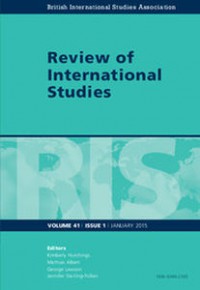European ‘Models’ and their Implications to China: Internal and External Perspectives

European Studies in China developed very rapidly in the last twenty years. The reasons for that are not only because of the smooth evolution of EU-China relations and wider and deeper economic interdependence between two economic giants, but also the relevance of the European models to China's domestic political and social development, as well as China's external relations. The article reviews the evolution of the European Studies in China and finds out that more and more research on European affairs relates to China's internal and external development. Two major aspects of the learning process are exploited further. Firstly, European models for China's domestic political and social development, including European party politics and Democratic Socialism, European social policy and social security systems, and European regional policies. Secondly, European models for China's foreign policy and external relations, including European neighbourhood policy, European concept of effective multilateralism, Europe as an example of peaceful rise, and functionalism as the way to East Asian regional integration. The EU or Europe has higher profile in China than any other Asia Pacific country. From the domestic political and social development and China's preference in international affairs we can see the silhouette of the European models. Chinese would like to learn more from Europe than the United States. It also shows clearly that the role of the EU as a social power.




